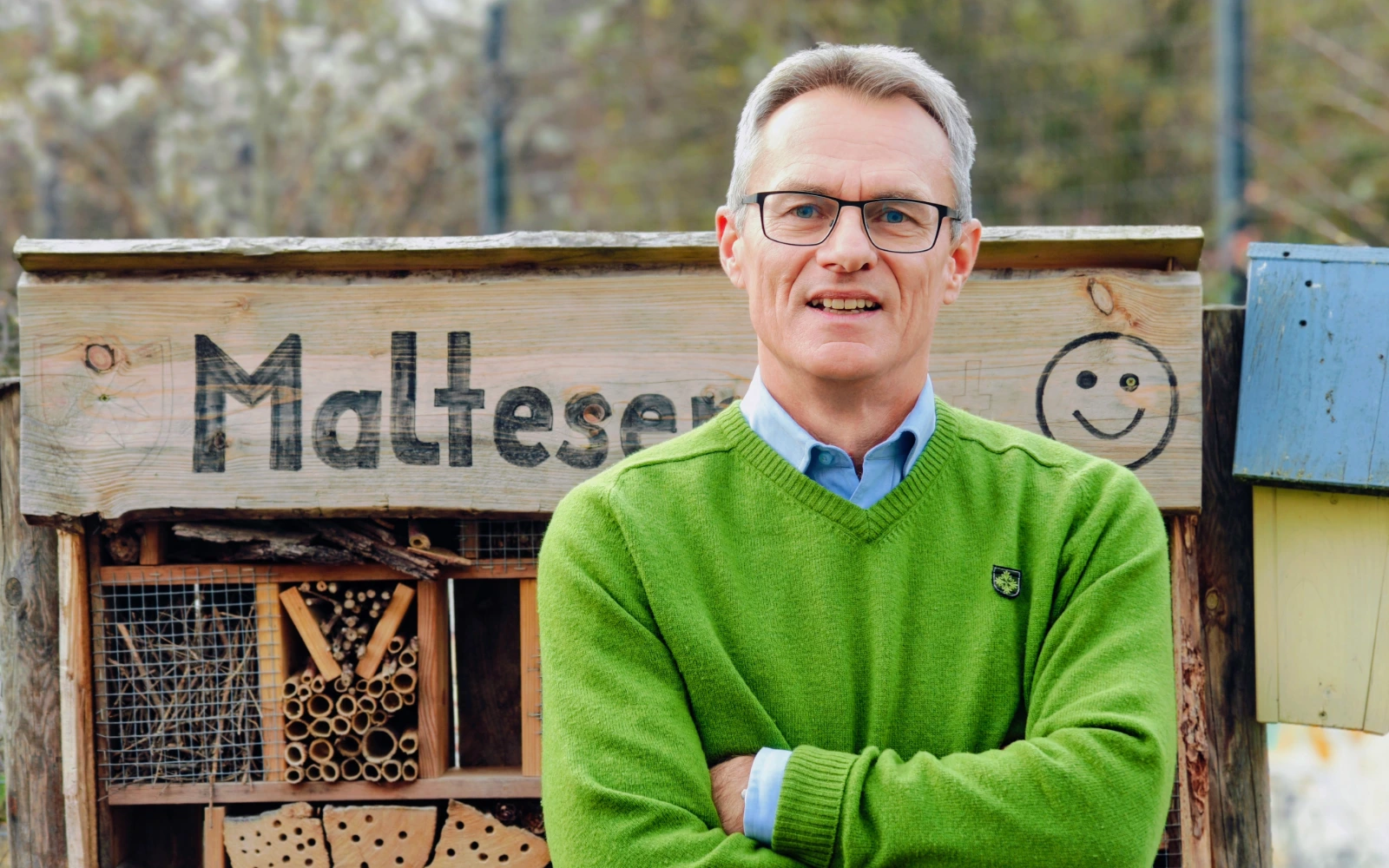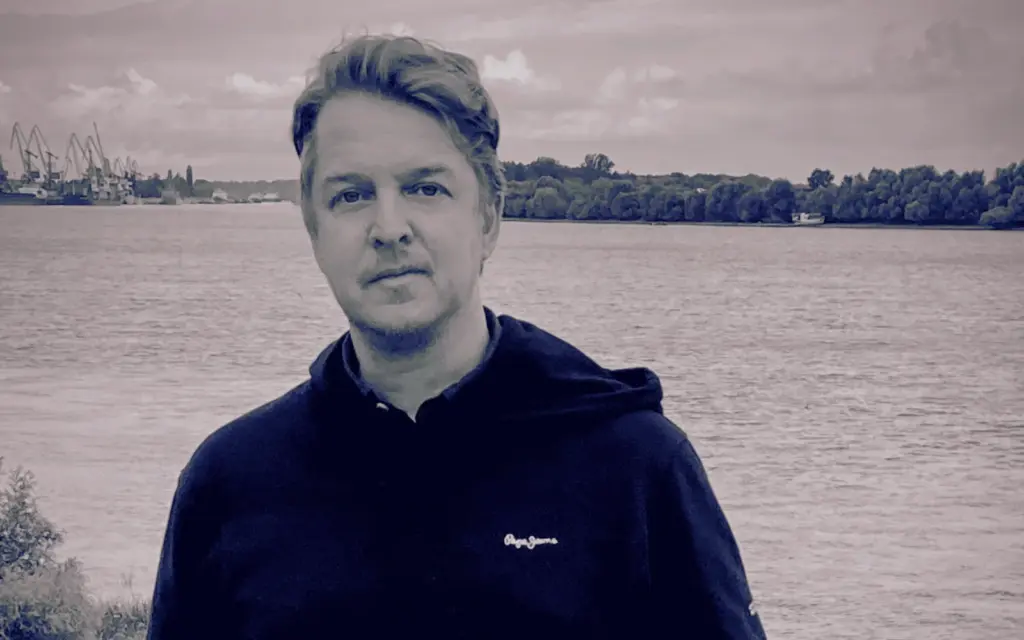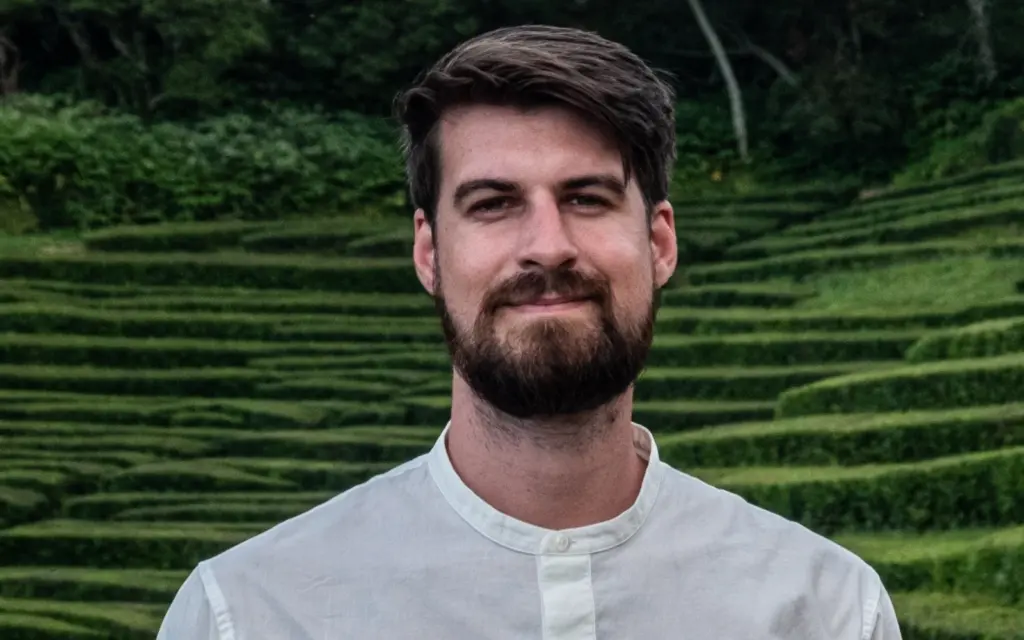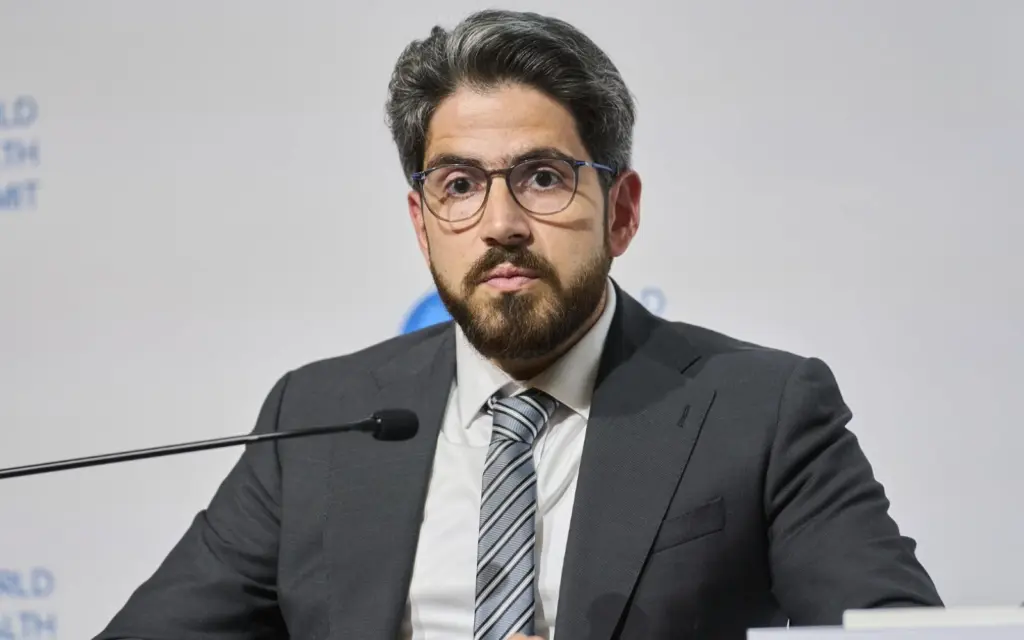OneSec: Roland, after 23 years at the helm of program work for Malteser International, you’re transitioning to a new role in Business Development. Looking back, how would you describe the evolution of humanitarian and development work?
Roland: It’s been a journey of immense change and learning. When I started, the work was very top-down. Take Asia, for example—when I first visited Cambodia, our health projects were rigidly structured, with little community involvement. Hygiene promotion, for instance, was conducted in classroom-style settings, with no interaction and no effort to engage different senses. As an ethnologist, I found this particularly striking. Culture and context are crucial in shaping effective programs, and yet we were delivering messages that didn’t resonate with people’s lived realities. This realization pushed me to advocate for participatory approaches and methods that embrace learning through all senses—not just cognitive but also emotional, social, and even sensory experiences.
OneSec: Can you give an example of this transformation?
Roland: One of the early turning points was adopting participatory learning and action (PLA) methods in Cambodia. Through this approach, we didn’t just teach—we listened. In one instance, women in the community identified a lack of safe bathing spaces as a major issue affecting their health and dignity. Together, we developed simple, locally-sourced solutions, like building bathing shelters. These experiences taught me that the best solutions often emerge from the communities themselves, not from external experts.
OneSec: That’s fascinating. How did this approach carry over to your work in Africa?
Roland: We went over to apply newer methods like P-FIM (People First Impact Method) by Gerry McCarthy and Paul O’Hagan which have taken community engagement to another level. By building trustful relationships throughout the project management cycle, these methods ensure that communities are truly heard and involved in decisions that affect them. This approach also ensures that project outcomes sustainably add value to the community because they are perceived as their own achievements, rather than something imposed or delivered by a third party.
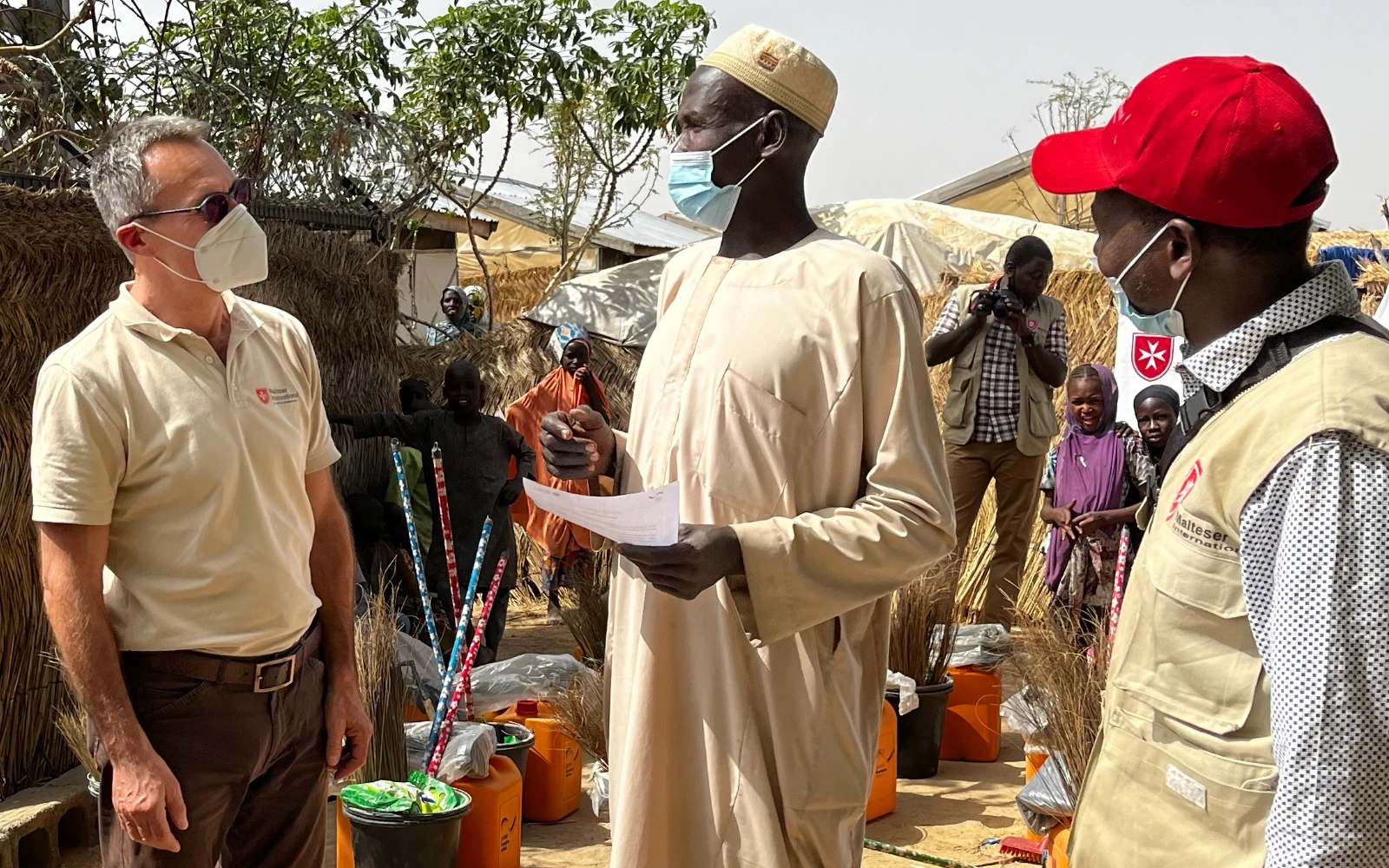
“Co-creating solutions and using approaches like lump-sum funding empower local organizations. They want to set their own priorities and manage resources in ways that make sense for them.”
OneSec: Localization has been a significant focus in the humanitarian sector. How do you see it evolving?
Roland: Localization isn’t always easy, but it’s absolutely essential. In Africa, for example, we’re still figuring out how to move from directly implementing projects ourselves to genuinely partnering with local organizations. For me, localization is about so much more than just funding projects locally—it’s about trust and giving local leaders the tools they need to succeed. I’ve seen how co-creating solutions and using approaches like lump-sum funding can empower local organizations to set their own priorities and manage resources in ways that make sense for them. My advice to local NGOs? Start investing more in national and regional fundraising. There might be a huge untapped potential there, and it could give NGOs the ability to plan for the long term. That’s the kind of change we need to see.
“Clean water and good nutrition are the foundation of a healthy life. Without them, everything else falters.”
OneSec: You’ve also emphasized the integration of sectors like Health, WASH, and FNS (Food and Nutrition Security). Why is that?
Roland: Health is about keeping people well every day, not just curing in clinics when things already went wrong. It means combining primary health care services with proper WASH (Water, Sanitation, and Hygiene) infrastructure in health facilities. This is essential to tackle antimicrobial resistance (AMR) and ensure standardized infection prevention and control (IPC). Just as critical are outreach efforts that bring practical solutions in WASH and FNS directly to communities. Clean water and good nutrition aren’t just nice to have—they’re the foundation of a healthy life. Without them, everything else falters. What we aim to do is connect these elements into a cohesive, lasting system of resilience, so that even when challenges arise, communities have what they need to thrive.
OneSec: Over the years, as you’ve worked across different contexts and challenges, were there any moments of realization that significantly shaped your approach?
Roland: One that stands out is the shift in donor perspectives. When I first started, humanitarian assistance was strictly short-term and life-saving. Building anything permanent was almost taboo. I recall a project in Afghanistan where we built temporary schools, only improve them with permanent roofs a year later using development funds. Today, there’s a growing recognition of the need for sustainable solutions from the outset. It’s a reflection of how the humanitarian-development-peace (HDP) nexus is gaining traction—an approach that recognizes the artificial divisions between these sectors.
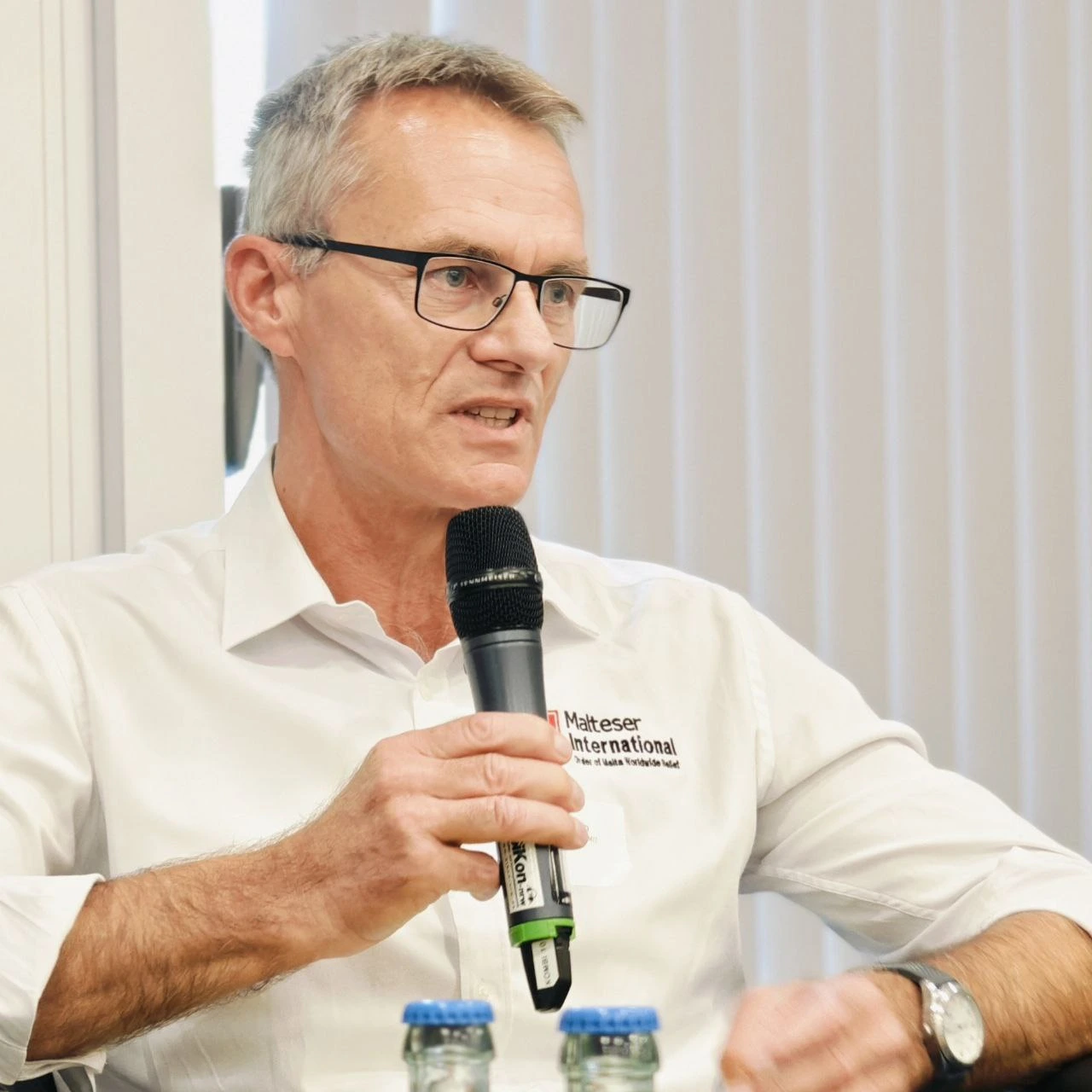
“People on the ground don’t separate humanitarian aid, development, and peacebuilding. They simply need solutions that work.”
Roland Hansen discusses progress in HDP Nexus at the BICC conference Ways Forward for the HDP Nexus in September 2024
OneSec: How do you see the HDP nexus evolving since the World Humanitarian Summit in 2016?
Roland: The nexus is about breaking down silos and addressing root causes rather than just symptoms. After the World Humanitarian Summit in Istanbul in 2016, it became clear that things are starting to grow together that belong together. The humanitarian-development-peace (HDP) nexus is a response to this realization. It acknowledges the artificial divisions and emphasizes integrated strategies, particularly in addressing complex issues after conflict, climate change, and the scarcity of resources. For people on the ground, though, these distinctions don’t exist—they don’t separate humanitarian aid, development, and peacebuilding. They simply need solutions that work. Historically, humanitarian aid grew out of the need for neutrality—think of the Red Cross on battlefields. But in most cases, immediate relief must go hand in hand with long-term adaptation strategies to build resilience.
OneSec: How do you see leadership evolving in this sector?
Roland: Leadership today is about enabling others. It’s less about making decisions from the top and more about creating spaces for collaboration and innovation. But leadership is a balancing act; for example, country coordinators need both strong leadership skills and solid technical expertise. It’s rare to find professionals who excel at both, but when you do, their impact is extraordinary. Working in this sector also involves navigating relationships with a wide range of stakeholders, from community members to donors, government officials, and international partners. Being able and willing to collaborate across these levels is crucial. For me, one of the most rewarding aspects of my career has been mentoring and developing talented individuals into effective leaders. Watching people grow and take on greater responsibilities has been a beautiful part of the journey. The challenges we face—whether pandemics, climate crises, or political instability—require flexible and inclusive leadership.
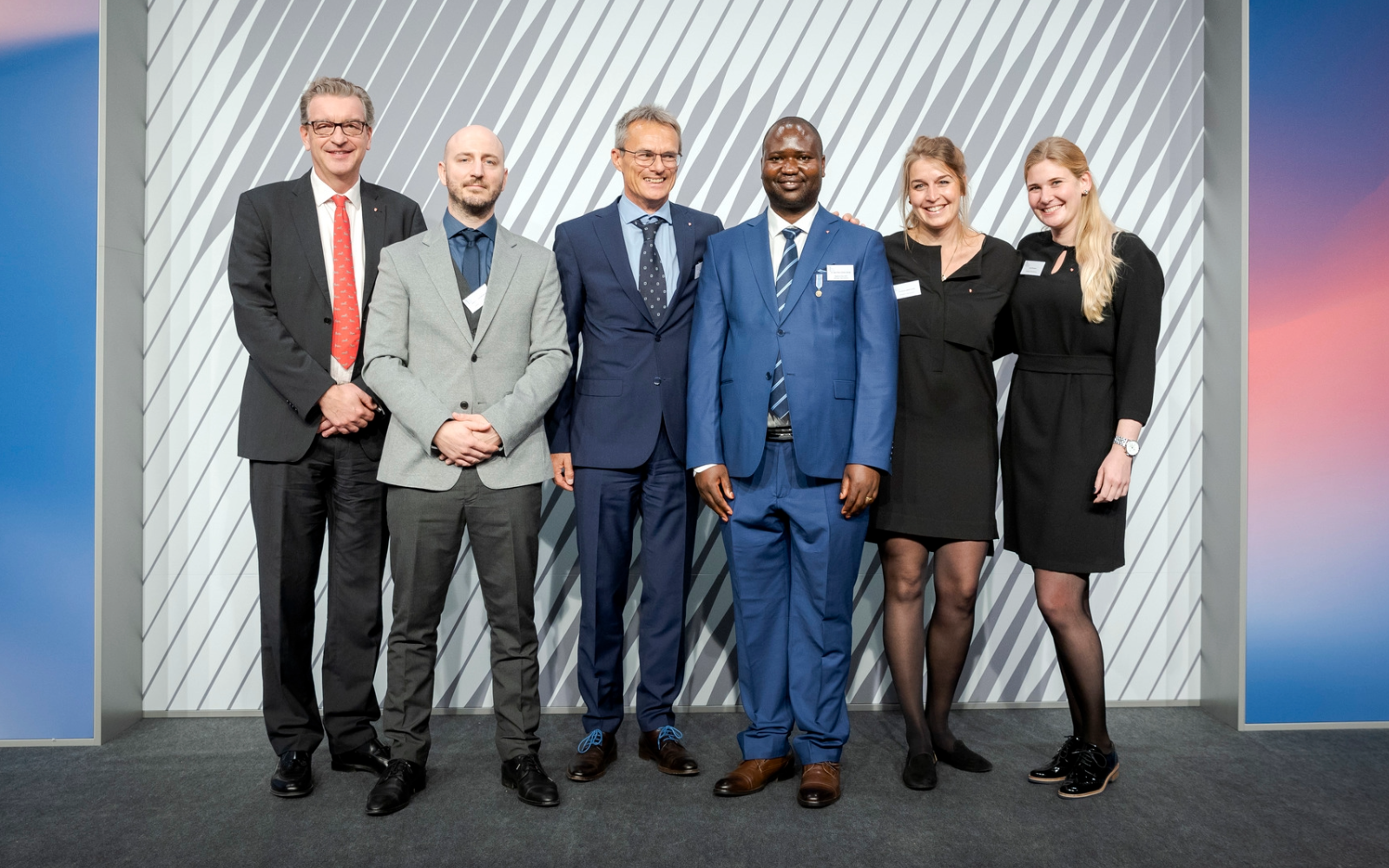
OneSec: As you move into Business Development, how do you plan to integrate these learnings?
Roland: It’s about building bridges—connecting the incredible work we do with private donors and foundations who want to make a difference. Fundraising is no longer just about asking for money; it’s about creating meaningful partnerships and showing donors the real impact of their contributions.
“It’s too often about building new infrastructure—but repairing and maintaining what already exists is far more sustainable and ensures that investments continue to serve communities for years to come.”
For example, we’ve been collaborating with the Water is Right Foundation to promote the Culture of Maintenance. It is too often about building new infrastructure—but repairing and maintaining what already exists is far more sustainable and ensures that investments continue to serve communities for years to come. Engaging donors on shared values like these, including sustainability and dignity, is an opportunity to drive real change. Another key area is raising awareness of the One Health approach, which helps counter pandemics by addressing the interconnected health of people, animals, and the environment, especially in tackling zoonotic diseases. Malteser International currently has four active projects advancing this approach. At the same time, I believe we have a moral responsibility to ensure the global north does not forget the African continent, especially in the face of climate change. Africa contributes almost nothing to global CO2 emissions, yet its people bear the highest costs of climate change. The consequences of focusing only on places like Ukraine or Syria while neglecting Africa would be catastrophic. It’s a call for equity and awareness in global priorities.
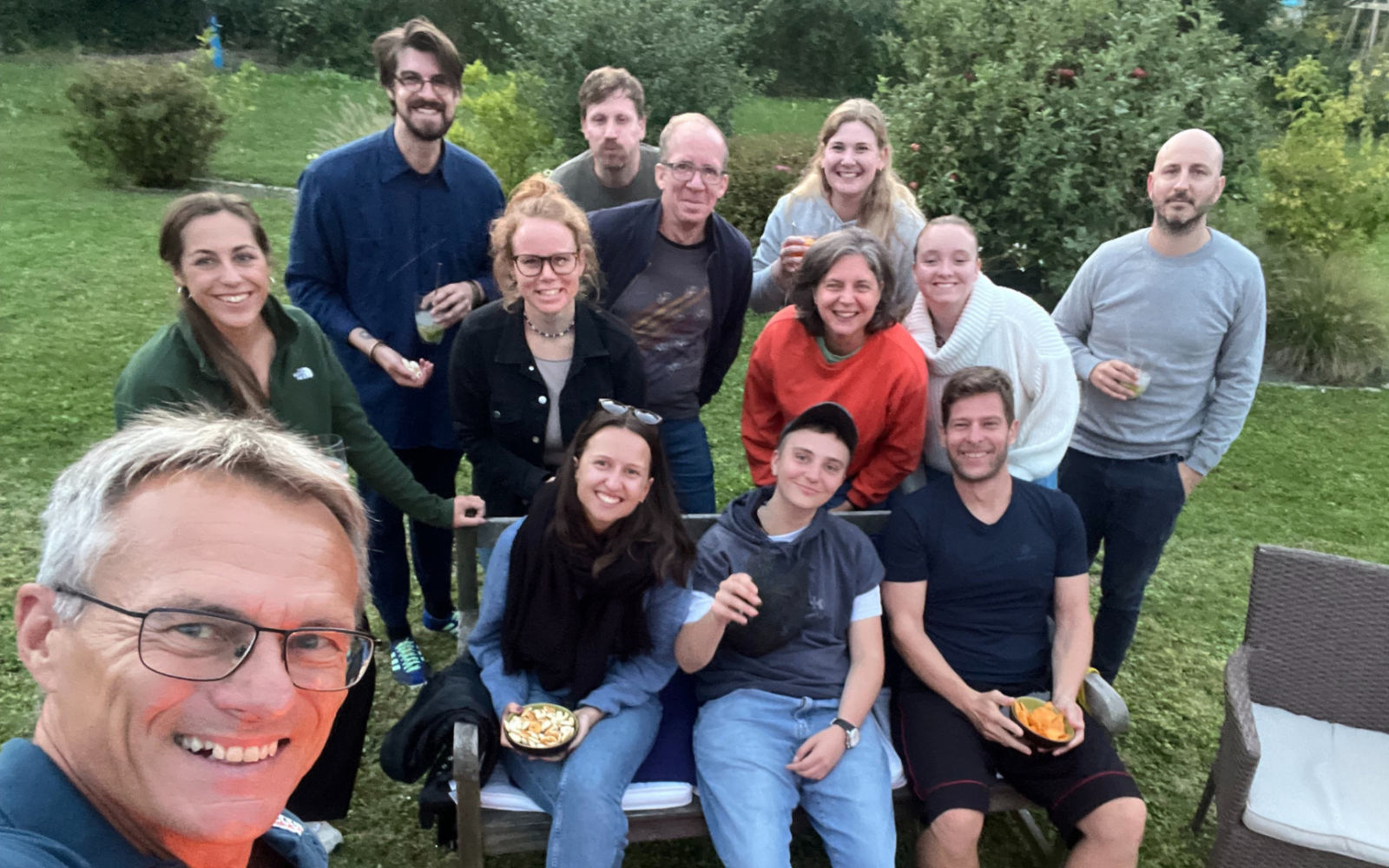
OneSec: Finally, as you reflect on your 23 years of leading regional program work at Malteser International, what stands out the most?
Roland: Without a doubt, it’s the people. I’ve had the privilege of working with such a devoted and wonderful team—it’s been both an honor and a joy. Whether during good days or tough challenges, we’ve always supported each other. The sense of camaraderie and shared purpose has been incredible. I wouldn’t trade these experiences for anything. It’s these relationships and moments that make this work so meaningful.
OneSec: Thank you, Roland Hansen, for sharing your journey and insights with us. We wish you all the best as you take on your new role in Business Development.
